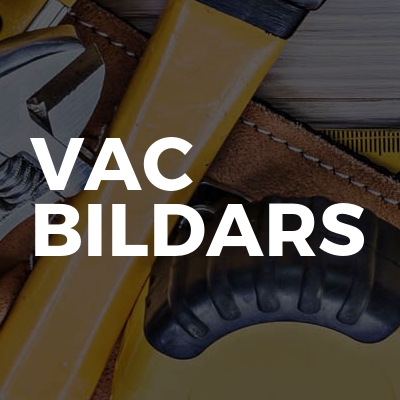Introduction to Garden Fencing in Staines-upon-Thames
Garden fencing in Staines-upon-Thames is more than just a boundary marker; it's a vital component of any garden's design and functionality. Whether you're looking to enhance privacy, improve security, or simply add a touch of style to your outdoor space, the right fence can make all the difference. In this article, we'll explore the various aspects of garden fencing, from materials and styles to installation tips and maintenance advice, ensuring you have all the information you need to make an informed decision.
The Importance of Garden Fencing
Garden fencing serves multiple purposes, each crucial to the overall well-being of your garden. Firstly, it provides privacy, allowing you to enjoy your outdoor space without prying eyes. Secondly, it offers security, keeping unwanted visitors out and ensuring children and pets stay safely within the garden's confines. Additionally, fencing can act as a windbreak, protecting delicate plants from harsh weather conditions. Lastly, a well-chosen fence can enhance the aesthetic appeal of your garden, complementing its design and adding value to your property.
Privacy and Security
One of the primary reasons homeowners invest in garden fencing is to create a private and secure environment. In Staines-upon-Thames, where gardens can be overlooked by neighbouring properties, a tall, solid fence can provide the seclusion you desire. Security is another critical factor, as a sturdy fence acts as a deterrent to potential intruders. By choosing the right height and style, you can ensure your garden remains a safe haven for your family.
Aesthetic Appeal
Beyond functionality, garden fencing can significantly enhance the visual appeal of your outdoor space. With a wide range of materials and styles available, you can select a fence that complements your garden's design. Whether you prefer the rustic charm of a wooden picket fence or the sleek modernity of metal panels, the right choice can transform your garden into a picturesque retreat.
Popular Fencing Materials
When it comes to garden fencing in Staines-upon-Thames, there's no shortage of materials to choose from. Each option offers its own set of benefits and drawbacks, making it essential to consider your specific needs and preferences before making a decision.
Wooden Fences
Wooden fences are a classic choice, beloved for their natural beauty and versatility. They can be painted or stained to match your garden's aesthetic and are available in various styles, from traditional picket fences to contemporary slatted designs. However, wood requires regular maintenance to prevent rot and decay, making it less suitable for those seeking a low-maintenance option.
Metal Fences
Metal fences, such as wrought iron or aluminium, offer a durable and stylish alternative to wood. They require minimal maintenance and can withstand harsh weather conditions, making them ideal for long-term use. Metal fences can be customised with intricate designs, adding a touch of elegance to your garden. However, they can be more expensive than other materials, so it's essential to consider your budget.
Vinyl Fences
Vinyl fencing is a popular choice for those seeking a low-maintenance option. Resistant to rot, insects, and weather damage, vinyl fences can last for decades with minimal upkeep. They are available in a range of colours and styles, allowing you to achieve the look you desire without the hassle of regular maintenance. However, vinyl can be more expensive upfront, so it's important to weigh the long-term benefits against the initial cost.
Choosing the Right Fence Style
Once you've selected your preferred material, it's time to choose a style that complements your garden's design. The right fence style can enhance your garden's aesthetic appeal and provide the functionality you need.
Picket Fences
Picket fences are a timeless choice, offering a charming and traditional look. They are ideal for front gardens, providing a welcoming boundary without obstructing views. Picket fences are typically made from wood or vinyl and can be painted in various colours to suit your garden's theme.
Panel Fences
Panel fences are a popular choice for those seeking privacy and security. Available in wood, metal, or vinyl, panel fences offer a solid barrier that keeps prying eyes out. They can be customised with decorative tops or lattice panels, adding a touch of elegance to your garden.
Slatted Fences
Slatted fences offer a contemporary look, with horizontal or vertical slats providing a sleek and modern aesthetic. They are ideal for creating a stylish boundary that allows light and air to flow through, making them perfect for gardens that require a balance of privacy and openness.
Installation Tips for Garden Fencing
Installing a garden fence in Staines-upon-Thames requires careful planning and execution. Whether you're a DIY enthusiast or hiring a professional, these tips will help ensure a successful installation.
Planning and Preparation
Before installing your fence, it's essential to plan and prepare thoroughly. Start by measuring your garden's perimeter to determine the amount of fencing material needed. Check for any underground utilities or obstacles that may affect the installation process. Additionally, consult with your neighbours to ensure the fence complies with local regulations and doesn't encroach on their property.
Choosing the Right Tools
Having the right tools on hand is crucial for a smooth installation process. Basic tools include a tape measure, spirit level, post hole digger, and a hammer or drill. Depending on your chosen material, you may also need specialised tools, such as a saw for cutting wood or a welding machine for metal fences.
Step-by-Step Installation Guide
- Mark the Fence Line: Use stakes and string to outline the fence's path, ensuring it's straight and level.
- Dig Post Holes: Use a post hole digger to create holes for the fence posts, ensuring they are deep enough to provide stability.
- Set the Posts: Place the posts in the holes and fill with concrete or gravel for added support. Use a spirit level to ensure the posts are vertical.
- Attach the Panels or Slats: Once the posts are secure, attach the fence panels or slats using screws or nails, ensuring they are level and evenly spaced.
- Finishing Touches: Add any decorative elements, such as post caps or lattice panels, to complete the look.
Maintaining Your Garden Fence
Regular maintenance is essential to keep your garden fence looking its best and prolong its lifespan. Different materials require varying levels of upkeep, so it's important to understand the specific needs of your chosen fence.
Wooden Fence Maintenance
Wooden fences require regular maintenance to prevent rot and decay. Start by applying a weatherproof sealant or stain to protect the wood from moisture. Inspect the fence regularly for signs of damage, such as loose boards or nails, and repair as needed. Additionally, clean the fence annually with a mild detergent and water to remove dirt and debris.
Metal Fence Maintenance
Metal fences are relatively low-maintenance but still require occasional care to prevent rust and corrosion. Inspect the fence regularly for signs of rust and treat with a rust-inhibiting primer and paint as needed. Clean the fence with a mild detergent and water to remove dirt and grime, and lubricate any moving parts, such as gates or hinges, to ensure smooth operation.
Vinyl Fence Maintenance
Vinyl fences are the easiest to maintain, requiring little more than occasional cleaning to keep them looking their best. Use a mild detergent and water to remove dirt and stains, and inspect the fence for any signs of damage, such as cracks or warping. Repair any damage promptly to prevent further issues.
Cost Considerations for Garden Fencing
When planning your garden fencing project, it's important to consider the costs involved. The total cost will depend on various factors, including the material, style, and size of the fence, as well as any additional features or customisations.
Material Costs
The cost of fencing materials can vary significantly, with wood generally being the most affordable option. Metal and vinyl fences tend to be more expensive, but they offer greater durability and require less maintenance, potentially saving you money in the long run.
Installation Costs
If you're hiring a professional to install your fence, labour costs will need to be factored into your budget. The complexity of the installation, as well as the size and style of the fence, will affect the overall cost. For those opting for a DIY approach, consider the cost of tools and any additional materials needed for the installation.
Long-Term Costs
While the initial cost of your garden fence is an important consideration, it's also essential to think about the long-term expenses. Maintenance costs, such as paint or sealant for wooden fences, should be factored into your budget. Additionally, consider the potential cost of repairs or replacements over time.
Environmental Considerations
As environmental awareness grows, many homeowners are seeking eco-friendly fencing options. When choosing a garden fence in Staines-upon-Thames, consider the environmental impact of your chosen materials and installation methods.
Sustainable Materials
Opting for sustainable materials, such as FSC-certified wood or recycled metal, can help reduce your fence's environmental footprint. These materials are sourced responsibly and have a lower impact on the environment compared to traditional options.
Eco-Friendly Installation Practices
Consider using eco-friendly installation practices, such as avoiding chemical-based sealants or paints, to minimise your fence's environmental impact. Additionally, choose a local supplier to reduce the carbon footprint associated with transportation.
Recycling and Disposal
When it's time to replace your garden fence, consider recycling or repurposing the materials to reduce waste. Many materials, such as metal and wood, can be recycled or reused in other projects, helping to minimise their impact on the environment.
Legal and Regulatory Considerations
Before installing a garden fence in Staines-upon-Thames, it's essential to be aware of any legal and regulatory requirements. Failing to comply with local regulations can result in fines or the need to remove or alter your fence.
Planning Permission
In some cases, planning permission may be required for your garden fence, particularly if it exceeds a certain height or is located near a road. Check with your local council to determine if planning permission is necessary for your project.
Boundary Disputes
Boundary disputes can arise if your fence encroaches on a neighbour's property. To avoid conflicts, ensure you have a clear understanding of your property's boundaries and consult with your neighbours before installing the fence.
Compliance with Local Regulations
Ensure your fence complies with any local regulations, such as height restrictions or material requirements. Failure to comply can result in fines or the need to alter your fence to meet the necessary standards.
Frequently Asked Questions
- What is the best material for garden fencing in Staines-upon-Thames? The best material depends on your specific needs and preferences. Wood offers a classic look, while metal provides durability, and vinyl requires minimal maintenance.
- How tall should my garden fence be? The ideal height depends on your privacy and security needs. Generally, fences range from 1.2 to 2.4 metres in height.
- Do I need planning permission for a garden fence? Planning permission may be required if your fence exceeds a certain height or is located near a road. Check with your local council for specific requirements.
- How often should I maintain my wooden fence? Wooden fences should be inspected and maintained annually, with regular cleaning and the application of a weatherproof sealant or stain.
- Can I install a garden fence myself? Yes, many homeowners choose to install their own fences. However, hiring a professional can ensure a high-quality installation and save time.
- What are the environmental considerations for garden fencing? Consider using sustainable materials, eco-friendly installation practices, and recycling or repurposing materials to reduce your fence's environmental impact.
In conclusion, garden fencing in Staines-upon-Thames offers a range of benefits, from privacy and security to aesthetic appeal. By carefully considering your material and style options, planning your installation, and maintaining your fence, you can create a beautiful and functional outdoor space that enhances your property's value and enjoyment.
















